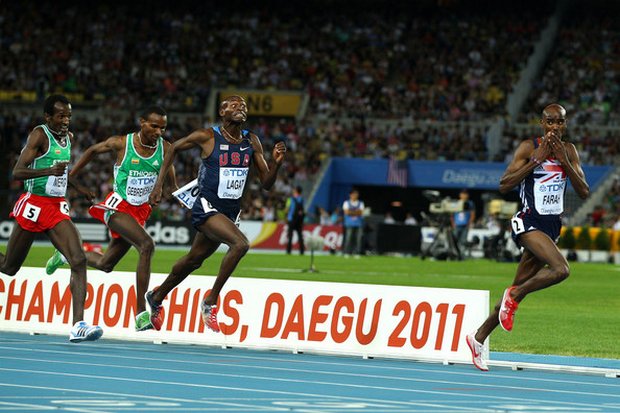
LONDON - World athletics' governing body IAAF has suppressed a 2011 survey that reveals up to one-third of the world's top competitors admitted using banned performance-enhancing techniques.
The outgoing International Association of Athletics Federations (IAAF) president Lamine Diack says that doping is a scourge, and when track and field fans don't believe what they see, the "sport is dead".
Amazingly, Diack claimed the IAAF "continue[s] to lead the way in this global fight against cheating.
"We will not let doping damage the credibility of our sport, and we will not stint in our crusade to have a clean sport," he claimed in an exit interview with the AFP news agency.
He spoke of his admiration for Jamaican sprint star Usain Bolt.
- Would-be IAAF chief: Ukrainian Bubka hedges his bets
Under Diack, the IAAF has allegedly been directly involved in widespread cheating and suspicious blood tests involving hundreds of athletes. The Monaco-based body responded by calling the claims "sensationalist and confusing".
Details of the cover-up were reported Sunday by Britain's Sunday Times and ARD/WDR German TV.
The researchers who conducted the study said the IAAF had not commissioned the survey, but had used its influence to suppress the findings, which have been leaked to the media.
The study was carried out by researchers at the University of Tuebingen in Germany, who conducted confidential interviews with athletes at the 2011 world championships in Daegu, South Korea, the reports said.
The results of the study showed that 29% to 34% of the 1,800 competitors at the championships had violated anti-doping rules in the previous 12 months.
"These findings demonstrate that doping is remarkably widespread among elite athletes, and remains largely unchecked despite current biological testing programmes," the study said.
A month after collecting the information and analysing it, they were told to sign a confidentiality agreement and have now criticised the IAAF for preventing its publication.
"The IAAF's delaying publication for so long without good reason is a serious encroachment on the freedom of publication," the researchers said in a statement.
The IAAF told the newspaper they were still in negotiations with the study authors and WADA about its publication.